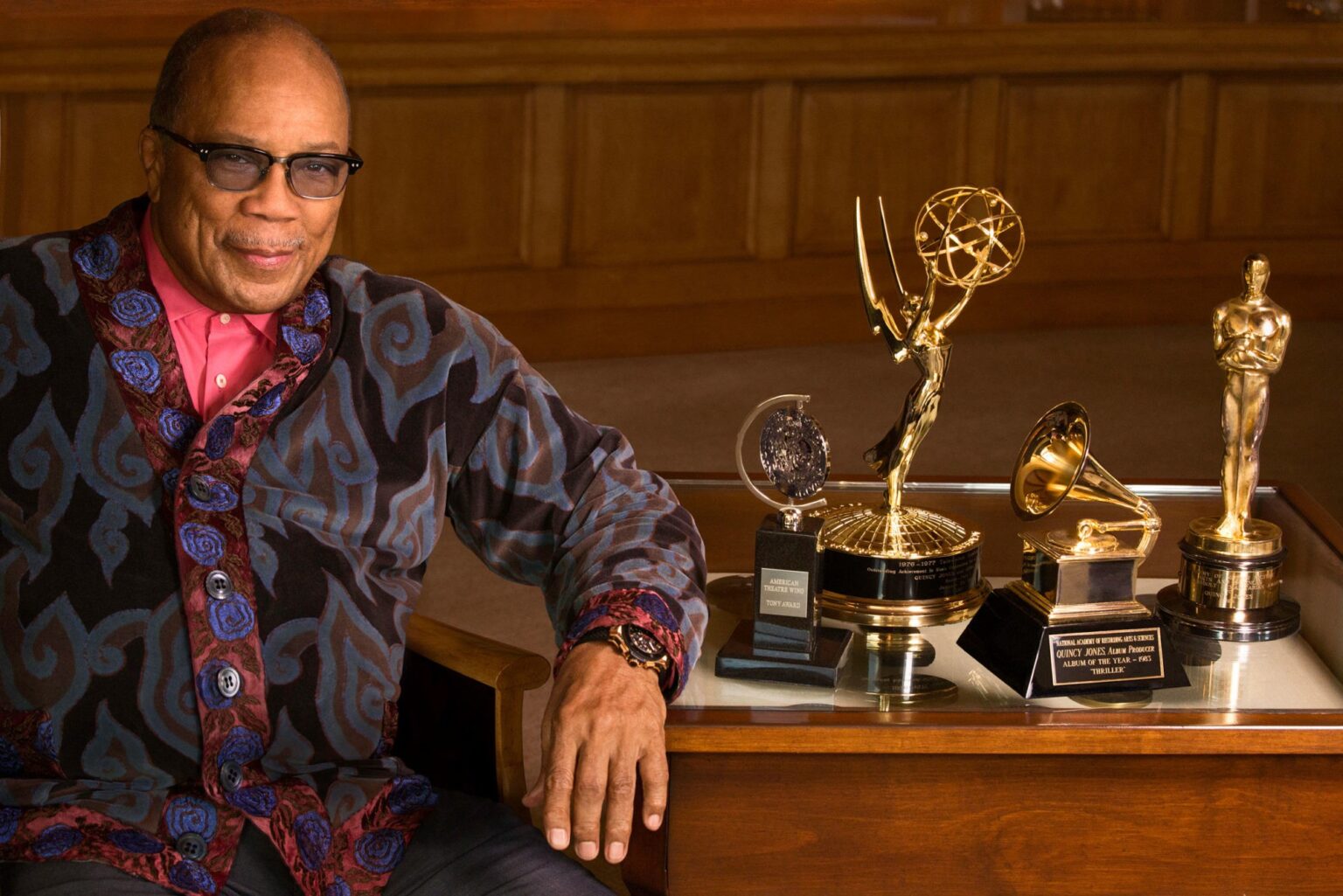Game 4 P.E.A.C.E Honors Quincy Jones: A Legacy of Rhythm, Resilience, and Revolutionary Impact by News-correspondent, Gabrielle Nicole
Game 4 P.E.A.C.E Honors Quincy Jones: A Legacy of Rhythm, Resilience, and Revolutionary Impact by News-correspondent, Gabrielle Nicole

Today, we, the Game 4 P.E.A.C.E family, gather to honor the life and legacy of Quincy Jones—a musical titan whose presence in our lives extended far beyond the notes he orchestrated. Quincy’s passing has left a profound void in the music industry, in our hearts, and in the very soundtrack of our lives. His gift to the world was not only in his music but in his unwavering belief in unity, resilience, and the transformative power of art. Quincy wasn’t just a legend; he was a pioneer, a storyteller, and a beacon for peace and understanding ideals we strive to uphold every day at Game 4 P.E.A.C.E.
A Journey Through Sound, From Seattle to Stardom
Born on March 14, 1933, in Chicago and raised in Seattle, Quincy Delight Jones Jr. was a child drawn to the trumpet, piano, and the magic of music. From his early years, Quincy’s genius was evident as he moved through life with an unmatched passion and curiosity. At just 14, he met Ray Charles, marking the beginning of a lifelong friendship and partnership that would shape modern music. From those early days, Quincy sought to learn from the greats, drawing inspiration and wisdom from jazz legends like Lionel Hampton, who would guide him as a young musician on tour.
These years were not merely about honing his technical skills; Quincy was learning to tell stories that resonated across cultures and boundaries. His gift lay in his ability to connect with audiences on a personal level, making every beat and every note feel like it was made just for you. By his twenties, Quincy had made his mark in New York, arranging for Duke Ellington, Count Basie, and Frank Sinatra—an accomplishment that underscored his visionary spirit.
A Trailblazer Breaking Down Barriers
In the 1960s, Quincy broke new ground by becoming the first African American vice president at Mercury Records. As he rose in the music industry, he challenged stereotypes, empowered others, and redefined what it meant to be an African American artist and executive in a world that wasn’t ready for change. His work at Mercury Records opened doors for a new generation of Black artists and musicians who saw Quincy as a symbol of resilience and hope.
Quincy’s work in film soundtracks made history. One of the first Black composers in Hollywood, he scored films like The Pawnbroker (1964), In Cold Blood (1967), and In the Heat of the Night (1967). Through these soundtracks, he crafted scores that brought emotional depth to stories and characters, creating soundscapes that felt as real and alive as the scenes they accompanied. The impact of these scores resonated far beyond the theater, proving that Quincy could bring stories to life in ways that words alone could not.
Defining the Soundtrack of Our Lives
Quincy’s career reached even greater heights in the 1980s when he teamed up with Michael Jackson, producing Off the Wall (1979), Thriller (1982), and Bad (1987)—albums that would redefine popular music and establish Michael Jackson as the King of Pop. Quincy’s production on Thriller, in particular, became the best-selling album of all time, with songs like “Billie Jean” and “Beat It” that remain part of our global musical consciousness. These collaborations went beyond pop music, establishing a language of rhythm and harmony that transcended borders.
In 1985, Quincy’s belief in music as a vehicle for change reached a pinnacle with We Are the World, the charity single for African famine relief. Bringing together an unprecedented lineup of artists, the project raised millions for humanitarian aid and reminded the world of the power of unity. Quincy knew that the universal language of music could bridge gaps and foster peace—a vision that deeply resonates with us at Game 4 P.E.A.C.E
The Color Purple and a Commitment to Storytelling
For Game 4 P.E.A.C.E, The Color Purple remains one of Quincy’s most remarkable achievements, both in film and on Broadway. His score for the 1985 film, directed by Steven Spielberg, captured the struggle, triumph, and indomitable spirit of the African American experience. The gospel and blues-inspired music wove a tapestry of resilience, which inspired and uplifted millions. The Broadway adaptation in the late 1980s further cemented Quincy’s commitment to representing Black narratives on stage, showing us that art could be both revolutionary and deeply personal.
A Legacy of Hope, Unity, and Change
Quincy’s influence lives on in every note, every lyric, and every beat of the music that defines our mission at Game 4


